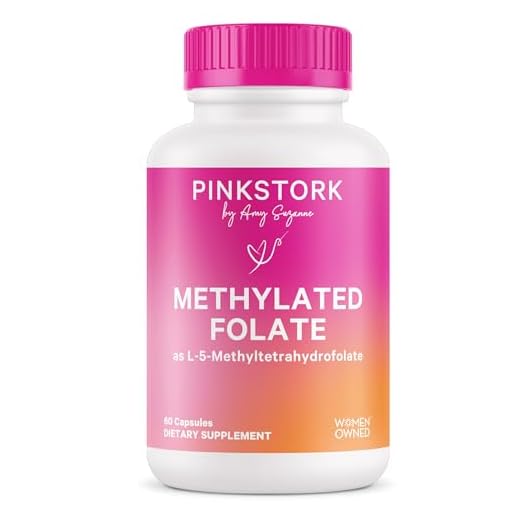







Prenatal vitamins can considerably reduce the risk of birth defects, mainly due to their high folic acid content. Folic acid helps prevent neural tube defects like spina bifida and anencephaly, with adequate intake reducing their risk by 50-70%. It's crucial to start taking prenatal vitamins at least three months before conception and continue through the first trimester to support fetal development. Additionally, these vitamins provide other critical nutrients that promote a healthy pregnancy. By understanding the importance of proper supplementation, you can take proactive steps toward ensuring a healthy start for your baby. There's much more to reflect on for ideal health.
Key Takeaways
- Prenatal vitamins contain essential nutrients like folic acid, which significantly reduces the risk of neural tube defects by 50-70%.
- Folic acid supplementation is recommended to begin three months before conception and continue through the first trimester for maximum effectiveness.
- Many women do not obtain sufficient folate from their diet, making prenatal vitamins necessary to meet daily requirements.
- Regular intake of prenatal vitamins supports maternal health, reducing the risk of other pregnancy complications that can affect fetal development.
- Maternal nutrition directly influences a child's long-term health, establishing a foundation for healthy growth and development.
Role of Folic Acid
Folic acid plays an essential role in preventing serious birth defects, particularly neural tube defects (NTDs) like spina bifida and anencephaly. Research shows that adequate intake of folic acid can reduce the risk of these defects by over 70%. It is also important for supporting cardiovascular health and mental well-being, making it a critical nutrient for women of reproductive age. For women of reproductive age, it's important to maintain the recommended daily intake of at least 400 micrograms of folic acid. Ideally, you should start this supplementation three months before conception and continue through the first trimester. Folic acid benefits
Prenatal vitamins are an effective way to guarantee you receive sufficient folic acid, often containing between 800 to 1000 micrograms. This higher dosage is crucial because NTDs develop within the first month of pregnancy, often before many women even realize they're pregnant. Given that nearly half of U.S. pregnancies are unplanned, routine folic acid intake is essential for all women of reproductive age.
Incorporating folic acid into your daily routine can greatly decrease the chances of NTDs and other birth defects. Prioritizing this nutrient is a proactive step you can take toward a healthy pregnancy and a healthy baby.
Recommended Daily Intake
Ensuring adequate folic acid intake is essential for women of childbearing age to considerably reduce the risk of birth defects. The recommended daily intake of folic acid is at least 400 micrograms (µg). This important nutrient helps support fetal development, especially in preventing neural tube defects, which arise during early pregnancy when the neural tube doesn't close properly. Studies have shown that folic acid supplementation considerably reduces the risk of neural tube defects. Incorporating fortified breakfast cereals into your diet can be a convenient way to meet this requirement, as they often provide 100% of your daily folic acid needs.
In addition to fortified foods, a varied diet that includes natural sources of folate—such as orange juice and green vegetables—can further enhance your intake. Prenatal vitamins typically contain higher doses of folic acid, usually between 800 to 1000 µg, catering specifically to the needs of pregnant women. If you have a history of neural tube defects, it's important to consult with your healthcare provider about increasing your daily folic acid intake to 4 mg.
Impact on Neural Tube Defects
Reducing the risk of neural tube defects (NTDs) is an essential reason for women of childbearing age to take prenatal vitamins that contain folic acid. Research shows that adequate folic acid intake can reduce the risk of NTDs, like spina bifida and anencephaly, by 50-70%. The U.S. Public Health Service recommends a daily intake of at least 400 micrograms of folic acid before and during pregnancy. This is important since NTDs occur during the first month of pregnancy, often before you even know you're pregnant. Products like Folic Acid Softgels provide essential support for fetal development through high-quality ingredients and effective absorption. Studies indicate that over 70% of NTDs could be prevented with proper folic acid supplementation, particularly during the critical neural tube closure period within the first 28 days post-conception. Prenatal vitamins typically provide between 800-1000 micrograms of folic acid, ensuring you receive enough during pregnancy to support fetal development and reduce the risk of birth defects. By prioritizing your daily intake of prenatal vitamins rich in folic acid, you're taking an important step toward safeguarding your baby's health and minimizing the risk of serious NTD-related complications.
Special Considerations for Women
Women of childbearing age should be aware of the specific considerations regarding prenatal vitamin intake, especially concerning folic acid. It's recommended that you take at least 400 micrograms of folic acid daily to considerably reduce the risk of neural tube defects (NTDs) in future pregnancies. If you have a history of NTDs, consult your health care provider, as you may need a higher dosage of 4 milligrams daily before and during pregnancy.
Even if you're not planning to become pregnant, folic acid supplementation is vital since nearly half of pregnancies are unintended. Prenatal vitamins typically contain 800-1000 micrograms of folic acid, which supports fetal development and helps prevent serious birth defects.
Tailoring your folic acid intake is important, particularly if you have personal or family medical histories that increase the risk of birth defects. Regular consultations with your health care provider can help guarantee you're meeting your nutritional needs effectively. By prioritizing folic acid, you're taking an important step toward safeguarding your potential future pregnancies against neural tube defects and other birth complications.
Understanding Nutritional Labels
When selecting prenatal vitamins, understanding nutritional labels is critical for making informed choices about your health. One key component to look for is folic acid, often indicated in micrograms (mcg). For women of childbearing age, the recommended daily intake is 400 mcg to help prevent birth defects, specifically neural tube defects. Be aware that folic acid may also be labeled as folate, so it's essential to check the serving size to guarantee you meet daily requirements.
Prenatal vitamins can vary greatly in their folic acid content, so reading the labels carefully is important. Some fortified foods, like breakfast cereals, may provide 100% of your daily folic acid requirement, which means you need to monitor their labels as well. It's important not to exceed one multivitamin per day to avoid potential toxicity while making sure you receive adequate folic acid for your reproductive health.
Benefits of Prenatal Vitamins
Prenatal vitamins play an indispensable role in supporting a healthy pregnancy and reducing the risk of birth defects. One of the key ingredients in these vitamins is folic acid, which is crucial for early fetal development. Research shows that taking 800-1000 micrograms of folic acid daily can reduce the risk of neural tube defects by 50-70%. Since nearly half of U.S. pregnancies are unintended, it's essential to guarantee you're getting adequate folic acid even before conception.
In addition to folic acid, prenatal vitamins provide other indispensable nutrients like iron and calcium, which help support a healthy placenta and fetal development. These nutrients contribute to overall maternal and infant health, making it important to maintain ideal nutrient levels throughout your pregnancy. Many women may not obtain sufficient folate and necessary vitamins through diet alone, making prenatal vitamins a practical solution.
Steps for Optimal Health
Achieving ideal health during pregnancy involves a combination of strategies that prioritize both maternal and fetal well-being. First, consider starting prenatal vitamins at least three months before conception. These vitamins should contain at least 400 micrograms of folic acid, which can reduce the risk of neural tube defects by 50-70%. Regular intake supports ideal fetal development and helps prevent birth defects.
It's essential to consult your healthcare provider to choose the right prenatal vitamin tailored to your specific nutritional needs. This guarantees you're addressing any deficiencies that may affect maternal health. Additionally, a balanced diet is important. Incorporate foods rich in omega-3 fatty acids, iron, and calcium, as these nutrients enhance fetal brain development and overall health outcomes.
Monitoring your health throughout pregnancy is also critical. Regular check-ups will help confirm both you and your baby are thriving. By combining prenatal vitamins with a nutritious diet and professional guidance, you can take significant steps toward ideal health, ultimately supporting a healthy pregnancy and reducing the risk of complications. Prioritize your well-being, and you'll be investing in your child's future health, too.
Conclusion
Incorporating prenatal vitamins, especially those rich in folic acid, plays an essential role in reducing the risk of birth defects. By ensuring you meet the recommended daily intake, you're taking a proactive step toward your baby's health. Just like a knight donning armor, you're equipping yourself with vital nutrients. Remember to read nutritional labels carefully and consult your healthcare provider for personalized advice. Prioritizing these vitamins today can lead to a healthier tomorrow for both you and your child.



